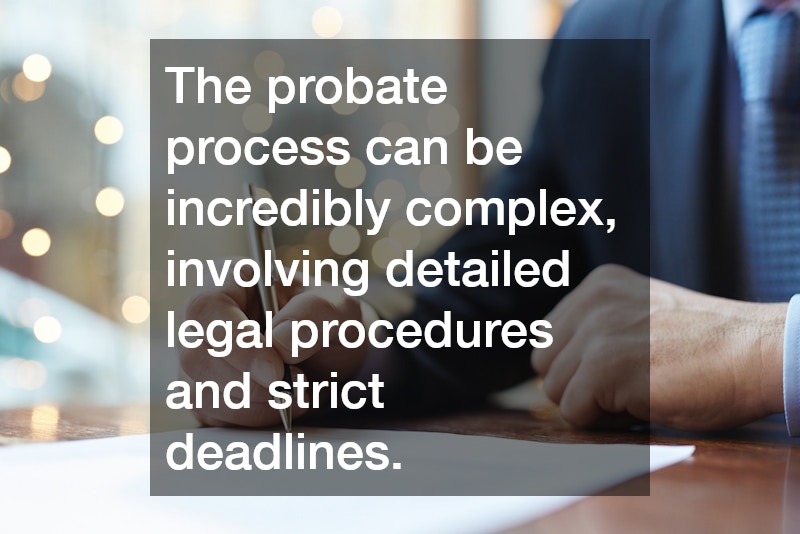Probate law is a branch of law concerning the legal process which manages the assets and debts left behind after someone passes away. A probate attorney specializes in guiding individuals through the probate process, ensuring that estates are managed according to the wishes of the deceased and within the confines of the law.
Probate attorneys play a crucial role in navigating the complexities of estate management, offering essential legal support to those tasked with handling these sensitive matters.
What is a Probate Attorney?
Definition and Role
A probate attorney is a legal professional who specializes in matters related to the distribution of a deceased person’s estate. They are responsible for ensuring that the estate is settled properly and that legal documents such as wills and trusts are executed as intended. The significance of probate attorneys lies in their ability to manage and resolve legal complications that may arise during the administration of an estate, providing clarity and security for their clients.
Historical Background
The history of probate law dates back to ancient times when laws were first established to govern inheritance and succession. Over centuries, probate law has evolved significantly, influenced by various legal systems and societal changes. Today’s probate attorneys are the product of this rich historical evolution, equipped to handle modern estates with an understanding of both traditional and contemporary legal principles.
Comparison with Other Types of Lawyers
While probate attorneys focus on estate management and administration, many other types of lawyers deal with different legal matters. For instance, family lawyers handle cases related to divorce and child custody, whereas criminal lawyers represent clients in criminal cases. Unlike other legal professions, probate attorneys uniquely combine legal expertise with an understanding of familial dynamics, which is essential in managing and resolving disputes among heirs.
Why Do You Need a Probate Attorney?
Legal Expertise and Counseling
Probate attorneys provide invaluable legal expertise and counseling, helping personal representatives understand their duties and responsibilities. They guide clients through the legal maze, ensuring that legal requirements are met and that estates are managed effectively. By providing expert advice, probate attorneys help mitigate potential legal pitfalls, safeguarding the interests of both the estate and its heirs.
Complexity of Probate Process
The probate process can be incredibly complex, involving detailed legal procedures and strict deadlines. Without a probate attorney, individuals may find it daunting to navigate these complexities and ensure compliance with legal frameworks. These attorneys help streamline the process, managing everything from filing petitions to attending court hearings, reducing stress for their clients.
How Does the Probate Process Work?
Initiating the Probate Process
To initiate the probate process, a personal representative must file a petition with the probate court. A probate attorney assists in preparing and submitting the necessary documents to start the proceedings. This early stage is crucial, as it sets the foundation for all subsequent estate administration activities, with the attorney ensuring everything is legally sound.
Administration of the Estate
During the administration of the estate, probate attorneys oversee the inventorying of assets and the payment of debts. They ensure that all estate assets are identified, appraised, and distributed according to the will or state law if no will exists. This phase involves meticulous attention to detail, with probate attorneys guiding clients through asset management and ensuring all financial obligations are met.
Closing the Estate
The final phase in the probate process involves closing the estate, which requires a court’s approval. Probate attorneys prepare and submit a final account of the estate’s administration, detailing all financial transactions and distributions. Once the court reviews and approves the account, the estate is officially closed, marking the end of the attorney’s role in the probate process.
How to Choose the Right Probate Attorney?
Assessing Qualifications and Experience
When choosing a probate attorney, it is crucial to evaluate their qualifications and experience in handling similar cases. Look for attorneys with a strong track record, as their expertise can significantly affect the efficiency of probate proceedings. Ensuring your attorney has both the legal acumen and the practical experience will facilitate a smoother estate management process.
Research and Recommendations
Researching potential probate attorneys and seeking recommendations from trusted sources can help identify reputable candidates. Consulting with family, friends, or other legal professionals can provide insights into an attorney’s reputation and reliability. This background research is an essential step in ensuring that the chosen attorney is a good fit for your specific needs.
Conclusion
In conclusion, probate attorneys play an indispensable role in the administration of estates by offering specialized legal knowledge and guidance. Their expertise is necessary to navigate the intricate probate process efficiently, ensuring that an estate is managed according to the deceased’s wishes while adhering to legal standards. Employing a knowledgeable probate attorney not only provides peace of mind but also protects the estate and its beneficiaries from potential legal challenges.




